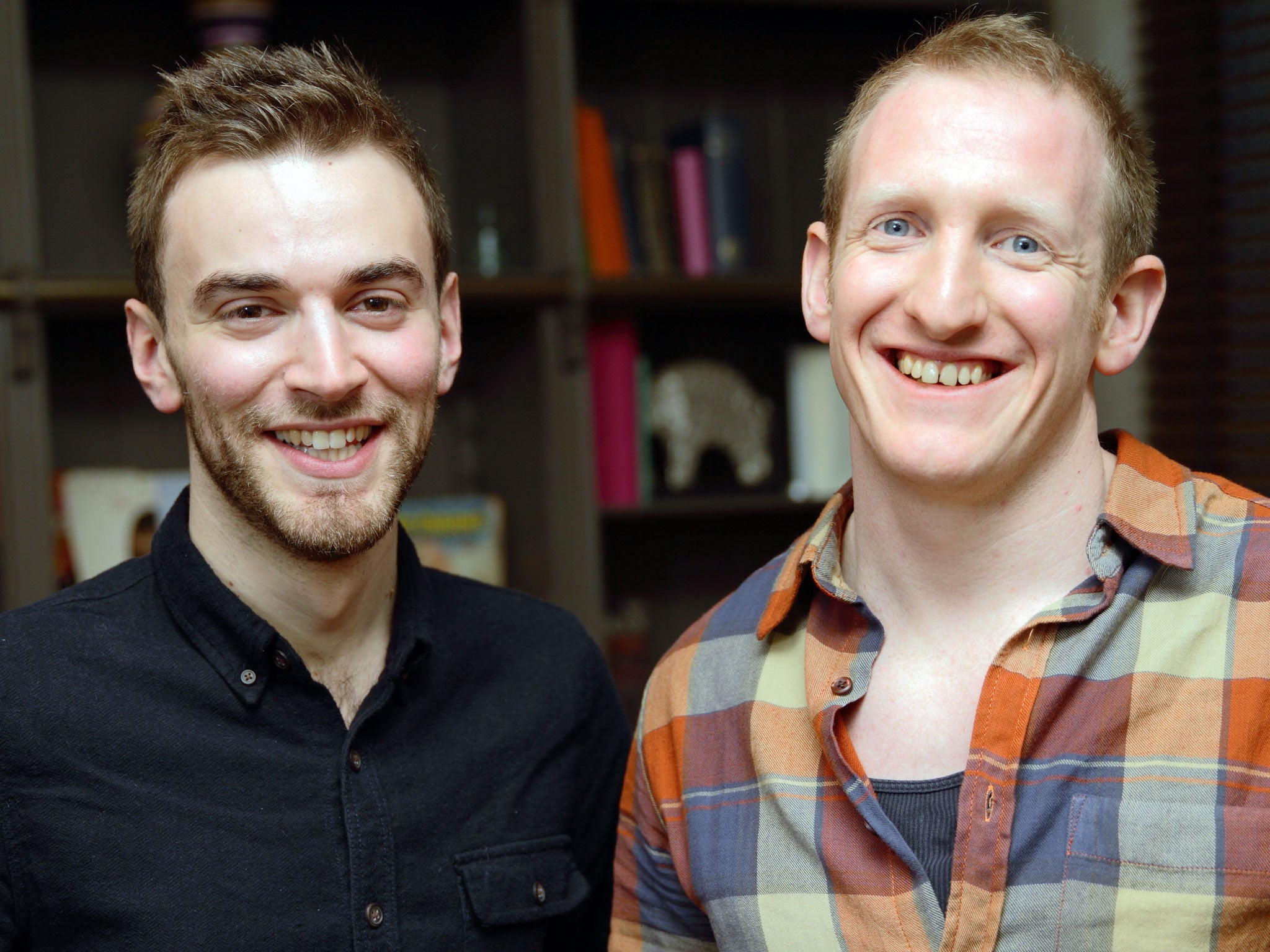How #FindMike helps to break suicide stigma
Any one of us could be a Jonny and any one of us could be a Neil

Out of the great many stories about mental health, sadly, not many of them have a happy ending. Not many of them have an ending at all; it's rare where mental illness is involved to be able to tie up all the loose ends or agree on a clear and logical explanation for something that is unlikely to be clear or logical. This story is pleasantly simple, and that's what makes it something quite beautiful.
Six years ago, a young man struggling with schizoaffective disorder stood at the edge of London's Waterloo Bridge and contemplated jumping. Rather than ignoring him, another man took the time to stop and talk to him, saying "Please don't do this, you can get better. Let's have a coffee and we can talk about this." A life was saved by a complete stranger and what happened on that bridge kick-started a long recovery, but something remained and nagged. Jonny wanted to say thank you and connect with the nameless man whose actions had saved his life, so together with Rethink Mental Illness, he launched a campaign which touched the hearts of people and sparked a worldwide hunt for 'Mike'. Just weeks later, Twitter worked its magic in that way that Twitter does and Jonny has finally been reunited with Neil (not Mike.)
The story of mental health campaigner Jonny Benjamin and his bid to #FindMike is more than just a breath of fresh air in a world where media reports frequently fail to do justice to the subject, often adding to existing stigma and stereotypes and some repetitively ignoring reporters' guidelines set out by leading charities.
Where reports are sound, informative and accurate, it's the content itself that often makes for disturbing reading. Just today, it's been revealed that 1 in 4 suicides occur within 90 days of discharge from hospital; a reflection of the lack of funds for transitional care and specialist care in the community as a result of ongoing cuts to mental health funding.
Finding Mike: man searching for the stranger who stopped him jumping off a bridge into the River Thames
It's so refreshing to enjoy a story about mental health that steers our attention away from problems and flaws, lack of services and that old smelly chestnut, stigma. Jonny's story is about people, it's about human instinct, it's about love and hope. It has led people to think about and face suicide as something more than the cause of hold ups on tubes, traffic and delayed trains. Suicide claims more lives among young men in the UK than anything else – that's huge. If we can bare to talk about cancer, heart disease, diabetes and tragic accidents, we should be able to talk just as openly about something that causes more fatalities, however hard that may be.
Jonny's story eases that door open, allowing conversations to start between people who would usually bury their heads or change the subject if the suicide word was mentioned. It's never going to be something that flies off the tongue, but you never know when it might affect you, someone close to you or a complete stranger with you in the spotlight.
I sometimes wonder how it must feel to know that you have saved a life. For many, it comes under the job description and saving lives is something they try to do every day, probably without much time to think about it. Others will have saved lives without even knowing it – there will be thousands of thank yous yet to be said (how do you tell a 4-year-old she saved your life?). But when a situation is thrust upon a person, when a life is in the balance right in front of our eyes, how do we react? After finally being reunited with Jonny, the once anonymous Neil Laybourn said, “I didn’t feel it was that big a deal, I did what anyone would do. I wasn’t trying to fix his problems that day, I just listened.” Modest, but wouldn't we all be? It doesn't make Neil any less of a hero.
The Samaritans charity is nervous that Jonny's tale may glamourise Laybourn’s intervention; most suicide attempts are not averted by guardian angels. It is true that such incidences are rare, but that doesn't mean that they shouldn't be celebrated or at least talked about. There is no romanticising suicide however it ends. This is a nice story, but it doesn't detract from the reality and charities, I would hope, should expect more calls as more of us are able to acknowledge and seek help before feelings and compulsions turn into actions.
Here's the truth. Any one of us could be a Jonny and any one of us could be a Neil. Not everyone who contemplates suicide has a history of mental illness and nobody can predict the way anyone could react to any given situation. The sooner we realise that this is something that could affect anybody at any time and the more we continue to learn not just to talk, but to listen, the closer we'll come to building a society where suicide is not a taboo subject and it can be seen for what it is – a desperate, but evidently preventable act.
Anyone who is struggling to cope can contact Samaritans on 08457 909090
Join our commenting forum
Join thought-provoking conversations, follow other Independent readers and see their replies
Comments
Bookmark popover
Removed from bookmarks